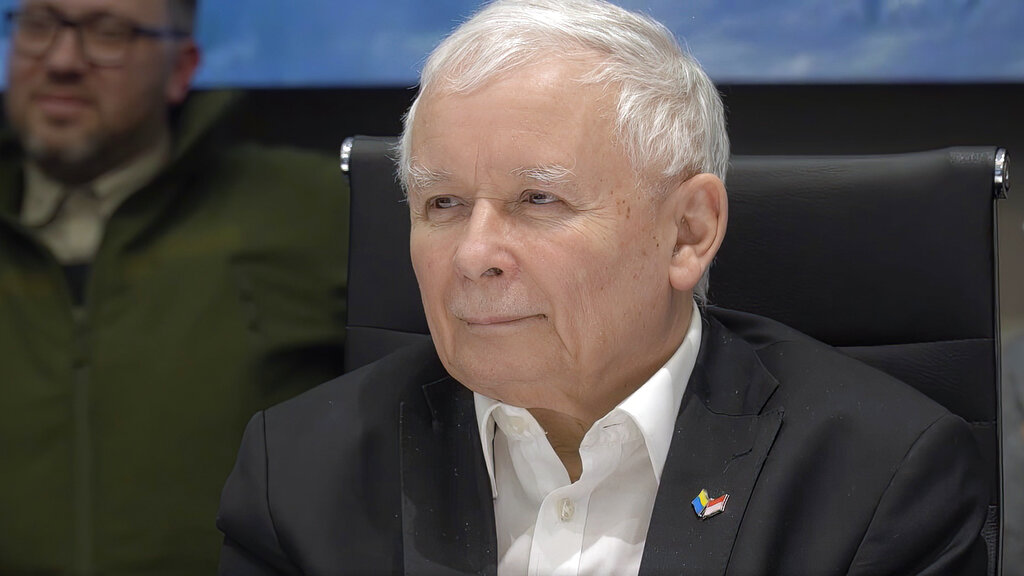Almost two weeks after the conference at Bankova street in Kyiv, where Polish Deputy Prime Minister and Law and Justice (PiS) head Jarosław Kaczyński’s proposal for peacekeeping troops in Ukraine was debated, Zalensky shared his opinion with independent Russian press.
He admitted that “he does not really understand this concept.” President Zelensky also mentioned that Ukrainians do not need a frozen conflict on their territory.

“I’ve explained this to our Polish friends. I know that they continued this rhetoric. Luckily or unluckily for us, this is still our country, I am still the president, so we will decide if any other forces will be here,” said Zelensky.
During the Kyiv visit of the prime ministers of Poland, Czechia and Slovenia, the president of Ukraine was not so straightforward with this critique. The Ukrainian Prime Minister Denys Shmyhal also didn’t put into question the words of Kaczyński. This idea from the start was an illusion at most, but no representatives of the Ukrainian side killed it explicitly, even off the record.
Meanwhile, even during the press conference in Kyiv, it was clear that there were no details and no content in the proposal. Kaczyński has said that he did not directly consult with NATO about a “peace mission” when asked by DGP in Kyiv. He also did not have an answer to the questions of who would lead it and what would be the area of operations.
At that moment, there was no better time for the Ukrainian government to distance itself from this proposal.
However, there were talks on Bankova Street of an implementation of a no-fly zone, which would, in fact, match Kaczyński’s proposal. Unofficial sources in the Polish government said that this proposal was not even meant to be “operationalized,” as it could only be used to up the ante in negotiations with NATO regarding the amount of help that would be sent to Ukraine. It was nothing more but an excessive gesture that was to be used in talks with the allies in the West.
[pp id=31658]
And yet, Zelensky coming back to this idea two weeks after it was ditched is even more pointless than the idea itself. The symbolism of doing that in a conversation with independent Russian journalists is irritating. It makes Poland, not the politician Kaczyński, but Poland, look unreasonable since it appears that the country makes proposals that are irrational, unprepared and off the cuff. It leaves outher nations with a bad impression of all of Poland. Few people will explore the issue in further detail and evaluate if Kaczyński is even responsible for creating Polish foreign policy or not.
Zelensky signed off on this impression with his critique. He did it in a radical and persuasive way. The proposal of Kaczynski, which could be used for Ukrainian benefit in talks with the West was discredited and now has taken on its own life in the realm of Polish politics. The Polish opposition can use this situation to deliver a blow against the leader of the Law and Justice (PiS) party. The result of this overdue critique is that the allies in NATO now have an argument to treat Poland less seriously, and the Russian propaganda machine is looking on with a smirk at this crack in the Polish-Ukrainian relations.






